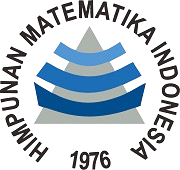How Adversity Quotient and Learning Independence Affect Students' Mathematical Problem-Solving Ability
DOI:
https://doi.org/10.30736/voj.v7i1.1146Keywords:
Mathematical Problem-Solving Skills, Adversity Quotient, Learning IndependenceAbstract
This study aims to analyze the influence of Adversity Quotient (AQ) and learning independence on students' mathematical problem-solving abilities and to explore problem-solving strategies based on differences in AQ and learning independence levels. The study employed a mixed-methods approach with a sequential explanatory design, involving 150 secondary school students. Results showed that AQ and learning independence significantly influenced problem-solving abilities, with learning independence having a greater impact. Students with high learning independence were more innovative and persistent, while those with low independence faced challenges. This study highlights the importance of developing AQ and learning independence to enhance students' problem-solving skills. Education should strengthen these aspects through strategies like project-based learning and resilience training, to better prepare students for real-world challenges.
Downloads
References
Agoestanto, A., & Masitoh, S. (2021). Mathematical creative thinking ability viewed from students’ learning interest and adversity quotient through creative problem-solving learning model. Journal of Physics: Conference Series, 1918(4). https://doi.org/10.1088/1742-6596/1918/4/042074
Agustin, D. R., Shodiq, L. J., & Shoimah, N. (2024). Kemampuan Pemecahan Masalah Matematis Siswa Ditinjau dari Kecemasan Matematis dan Jenis Kelamin. Jurnal Edumath, 10(2), 95–103.
Astivia, O. L. O., & Zumbo, B. D., (2019). Heteroskedasticity in Multiple Regression Analysis:What it is, How to Detect it and How to Solve it with Applications in R and SPSS. Practical Assessment, Research & Evaluation, 24 (1), 1-16.
Bariyyah, K. (2021). Problem solving skills: esssential skills challenges for the 21st century graduates. Jurnal Educatio: Jurnal Pendidikan Indonesia, 7(1), 71. https://doi.org/10.29210/120212843
Code, J. (2020). Agency for Learning: Intention, Motivation, Self-Efficacy and Self-Regulation. Frontiers in Education, 5 (February), 1–15. https://doi.org/10.3389/feduc.2020.00019
Cho, S. J., Boeck, P. D., Naveiras, M•, & Ervin, H. (2022). Level-specific residuals and diagnostic measures, plots, and tests for random effects selection in multilevel and mixed models. Behavior Research Methods, 54 (1), 2178–2220. https://doi.org/10.3758/s13428-021-01709-z
Downloads
Published
How to Cite
Issue
Section
License
Copyright (c) 2025 Gabariela Purnama Ningsi, Dwi Juniati, Siti Khabibah

This work is licensed under a Creative Commons Attribution-NonCommercial-ShareAlike 4.0 International License.
Copyright:
Authors who publish their manuscripts in this Journal agree to the following conditions:
- Copyright of any article on Vygotsky: Jurnal Pendidikan Matematika dan Matematika is held solely by the author under the Creative Commons Attribution 4.0 International license (CC BY NC SA).
- Authors can submit papers separately, arrange non-exclusive distribution of manuscripts that have been published in this journal into other versions (e.g. sending to the author's institutional repository, publication in a book, etc.) by acknowledging that the manuscript has been published for the first time in Vygotsky: Jurnal Pendidikan Matematika dan Matematika.
License:
Vygotsky: Jurnal Pendidikan Matematika dan Matematika is published under the terms of the Creative Commons Attribution 4.0 International License (CC BY NC SA). This license permits anyone to copy and redistribute this material in any form or format, compile, modify and develop this material for any purpose as long as it is not for commercial purposes. Additionally, anyone must provide credit and distribute contributions under the license of the creator of the original work.







